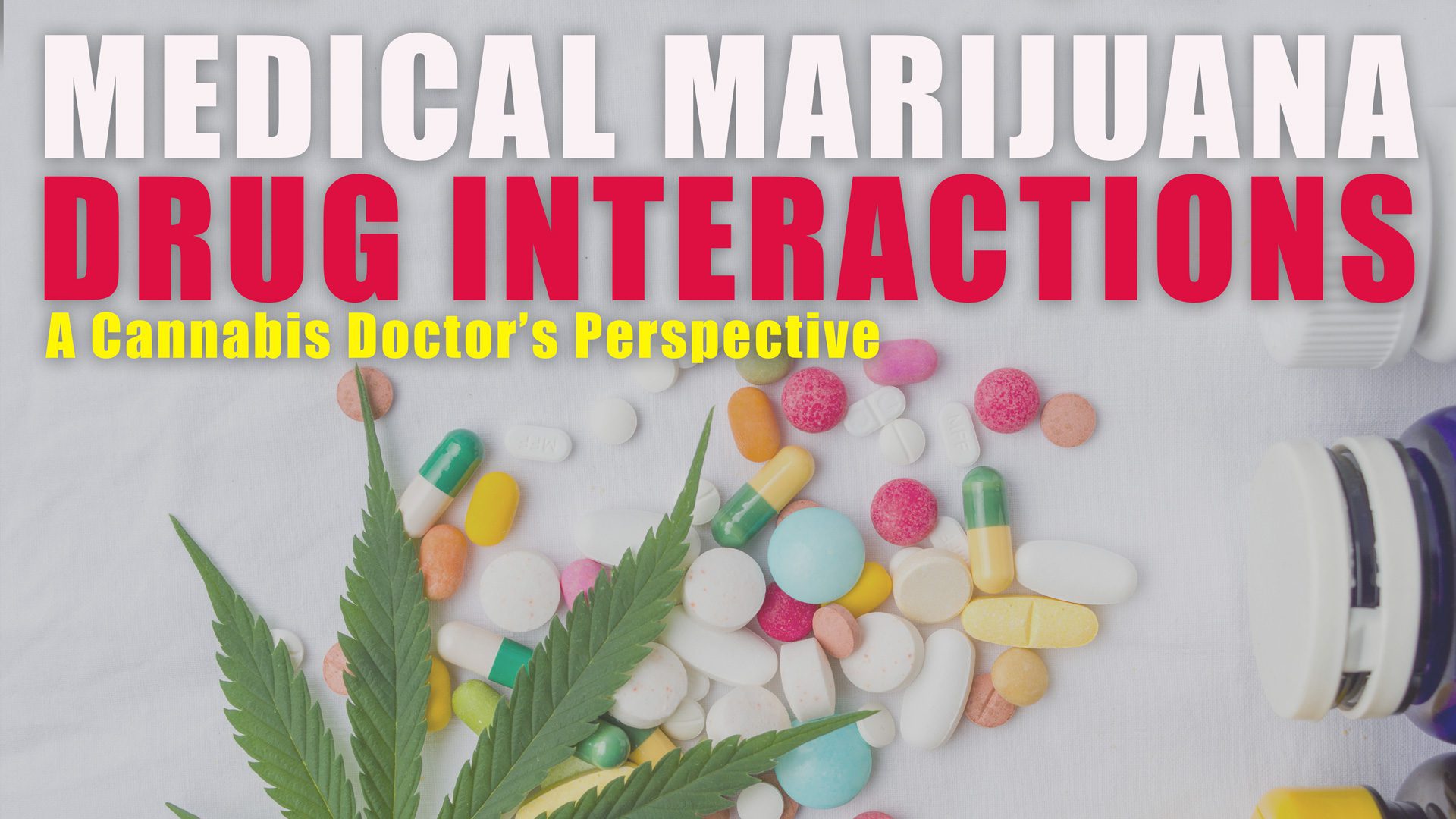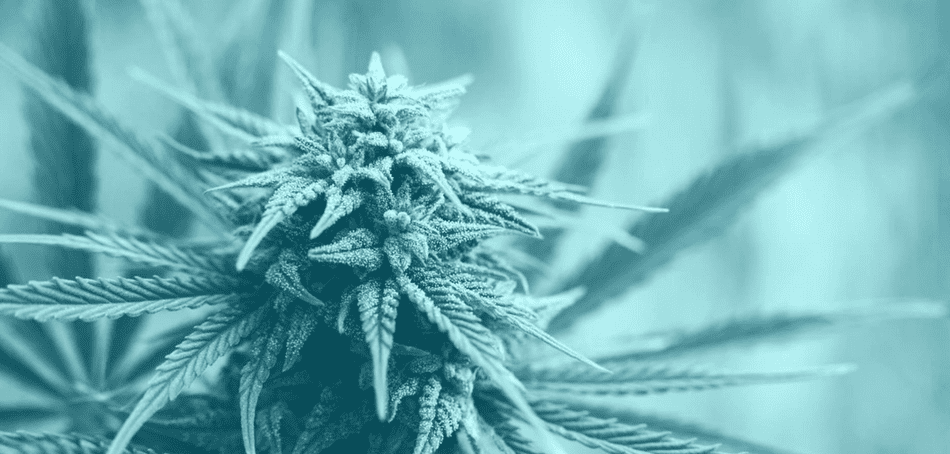Many patients come to Green Health Docs looking to reduce the amount and/or dosage of their current prescription medications. In fact, opioid substitution is a one of the qualifying conditions listed in Missouri’s medical marijuana program. This is understandable since most medications have the potential for harmful side effects, especially with prolonged use. Even over-the-counter pain medications like ibuprofen (Motrin) can cause stomach ulcers or increased bleeding if overused.
One of the biggest concerns with patients is how medical marijuana interacts with prescription drugs. Dr. Evan Edwards dives into how cannabis can work with prescriptions, and what to avoid.
Can Medical Cannabis Replace All My Prescriptions?
Despite all the medical benefits of cannabis, there are many drugs that it can’t replace. Blood pressure medication, blood thinners, antidepressants, anxiolytics, seizure medications and chemotherapeutics are examples of common medications that should be continued in conjunction with medical marijuana.
Luckily the effects of marijuana itself are pretty benign, and that will be a topic for another blog post. But what about the effects of marijuana in conjunction with these common types of medications?
Marijuana Slows Down the Metabolism of Prescription Medication
Most of the cannabis-drug interactions can be traced back to liver metabolism. Our livers have important Cytochrome P450 enzymes (abbreviated CYP450) that metabolize the vast majority of drugs that we take. Cannabinoids like THC and CBD are also metabolized by these enzymes.
The effectiveness of your CYP450 enzymes can be altered by other medications, and in the case of cannabis, this can cause your other medications to get metabolized more slowly. As a result, your prescription medication will remain in your system longer and at higher levels than intended, which can sometimes cause unwanted side effects.
The good news is that this usually only occurs at very high doses, and CBD appears to be the main culprit. Cannabis is just a plant but it can still have undesired consequences (especially when taken with other drugs).
Side Effects and Signs of Marijuana-Drug Interactions
The vast majority of patients do not experience side effects when taking cannabis in conjunction with other common medications, but given the lack of clinical trials on cannabis, it is wise for patients to be aware of some possible drug-cannabis interactions.
Marijuana & Blood Thinner Medication
It is particularly important to watch for side effects when using blood thinners like Eliquis, Xarelto, and Coumadin. Be wary of cuts that bleed too long, increased bruising, increased nosebleeds, or blood in your stool or vomit.
Marijuana & Blood Pressure Medication
When using blood pressure medications like Carvedilol, Hydrochlorothiazide, Lisinopril and Valsartan, watch for low heart rate, fatigue, or reduced blood pressure approaching 90/60. It is important to note that anyone at risk for sudden cardiac arrest should have an AED device nearby in case they experience an SCA event.
Interactions of Other Medications with Cannabis
Antidepressants, anxiolytics, seizure medications, and chemotherapy medications all have their own specific side effects that may become pronounced by cannabis use as well. Stay vigilant for anything abnormal and make sure to discuss with your physician.
Marijuana & Interactions with SSRI Medications
Cannabis also has possible interactions with medications that are not related to liver metabolism. Some case studies have shown that cannabis combined with SSRI antidepressant medications like Zoloft and Prozac can induce hypomania (elevated mood with symptoms such as racing thoughts, decreased sleep, grandiose thoughts, and talkativeness).
Marijuana Interactions with Sedative Drugs
Sedatives and anti-anxiety medications may have their effects amplified by cannabis use as well. However, there are not enough rigorous studies to warrant avoiding concurrent cannabis use completely.
People have been using cannabis legally and illegally in combination with their prescription drug regimens for decades and there has yet to be much cause for concern for the general public.
Important Facts about Cannabis Metabolism
Your age, route of administration/ingestion, and the health of your liver are examples of factors that can determine whether the current dose of cannabis you use is safe with your other medications. Genetics also play an important role, as it does for most medications. The genetics of your drug transporters could affect how much THC is able to cross your blood-brain barrier.
Furthermore, everyone’s cells have different concentrations of the CB1 and CB2 receptors that cannabinoids activate. Some people also have variations in their CYP450 enzymes which make them less effective at metabolizing cannabinoids, making even low doses of cannabis have more powerful effects on them.
If you notice that cannabis is affecting your medications and causing serious side effects, it’s recommended that you cease cannabis use and notify your medication prescriber as soon as possible in case doses need to be adjusted.
If the side effects are minor, there are a few things you can adjust to prevent them from reoccurring. You can cut back on edibles, since orally administered cannabis is more heavily metabolized by the liver. You can also reduce your CBD intake since research shows it more drastically affects CYP450 liver metabolism than THC at higher doses.
What Should You Know about the THC and CBD Content of Your Medication?
Try to stagger your prescription drugs and your cannabis use to give time for your body to metabolize each separately. If all of those things fail you may have to either lower your cannabis dose or use a lower dose of your medications while using cannabis.
The vast majority of patients do not notice any major side effects as a result of cannabis interfering with liver metabolism. Nonetheless it’s important to use common sense if you are new to cannabis or if you are starting a new prescription medication.
Lastly, try to be aware of the THC and CBD content of your medication if you are trying new strains or if you are trying a different route of administration. Keep the cannabis risks in mind so you can fully enjoy all the medical benefits this amazing plant can offer.
About the Author:
Dr. Evan Edwards is a medical cannabis expert and practices as a physician with Green Health Docs. Dr. Edwards was the first doctor in the Green Health group of providers and as such has seen more Maryland cannabis patients than almost any other provider in the state of Maryland. Believing the potential of this plant to heal many, Dr. Edwards enjoys providing this option for patients and loves seeing the improvements cannabis has made in the lives of his patients.
Green Health Docs has multiple locations throughout Maryland, Ohio, and Missouri where they help patients get marijuana cards legally and receive education on medical cannabis use.


Leave a Reply